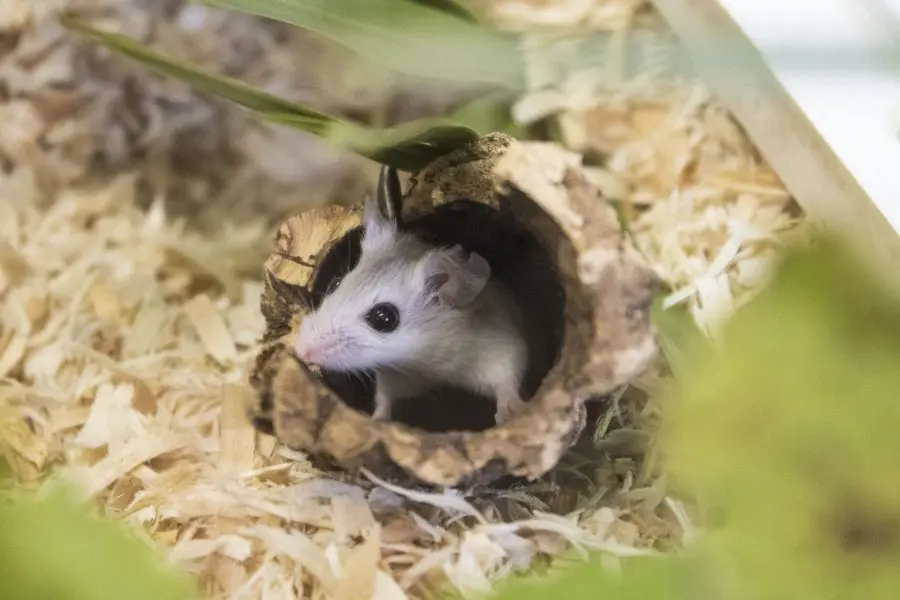

For about 15 years, our Zoo has been one of a handful of conservation breeding programs for the Perdido Key beach mouse. We’re hoping to help expand that number as well as awareness of this critically endangered species with its recent addition to the Association of Zoos & Aquariums’ (AZA) SAFE program.
Our own conservation manager, Becca Downey, will lead this SAFE program, which stands for Saving Animals from Extinction, along with steering committee members from Bronx Zoo-Wildlife Conservation Society, Sante Fe College Teaching Zoo, Clearwater Marine Aquarium and Smithsonian’s National Zoo and Conservation Biology Institute.
Becoming a SAFE program will expand opportunities to allow other facilities and the public to learn about the beach mice conservation plan and the overall importance of the species to Perdido Key. It will open more opportunities for us to work with the Florida Fish and Wildlife Conservation Commission and U.S. Fish and Wildlife Service to help with population studies and understand the overall behavior of the mice.
“Additionally, SAFE programs receive resources such as grant funds and partnerships with genetic experts that would not be available otherwise,” Becca said. “SAFE programs help us to further our conservation message at Brevard Zoo under the umbrella of AZA.”
Over the next six months, the beach mouse SAFE team will develop a three-year plan that includes measurable conservation objectives to advance established conservation plan(s), including conservation/science and public/stakeholder strategies as well as address existing conservation threats. We will also hold annual program meetings and workshops regarding beach mice.
Brevard Zoo has held an assurance population of this species of beach mice for more than a decade now. This species plays a big part in coastal dune ecosystems in Florida and Alabama. Perdido Key beach mice are one of seven subspecies that help spread the seeds of dune-stabilizing plants as well as aerate the soil to encourage the plant growth. This keeps the plants in place – preventing severe erosion.
Coastal development, feral cats, rising sea levels and hurricanes all threaten this species. Although the Perdido Key beach mouse was put on the endangered list in 1985, it wasn’t until 2004 – and Hurricane Ivan – that wildlife biologists removed mice from Perdido Key State Park in order to protect the species. Only 12 were able to be found of this once viable population. This action eventually kicked off the breeding project at Brevard Zoo in 2007.
Regular studies at Perdido Key keep track of the wild population. A reserve of mice also remains at the zoos in case Perdido Key’s population of beach mice decreases substantially – which has happened only once in 2010.
Clearwater Marine Aquarium and Santa Fe College Teaching Zoo are currently housing beach mice, and we are hoping more facilities will show interest in being a part of the solution to help save the species. We hope that with the mice becoming the 35th SAFE species, this will help move us toward this goal.
“Our desire is to slowly grow in a sustainable manner that best fits the needs of the species and partners currently involved,” Becca said.
Brevard Zoo is an independent, not-for-profit organization that receives no recurring government funding for our operating costs. Your generous support enables us to continue to serve our community and continue our vital animal wellness, education and conservation programs.